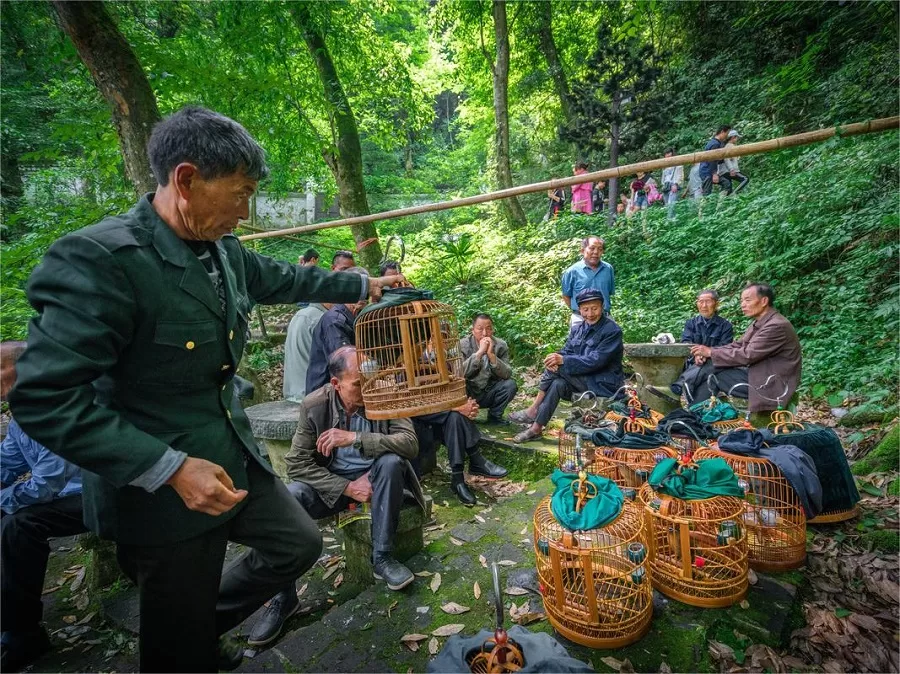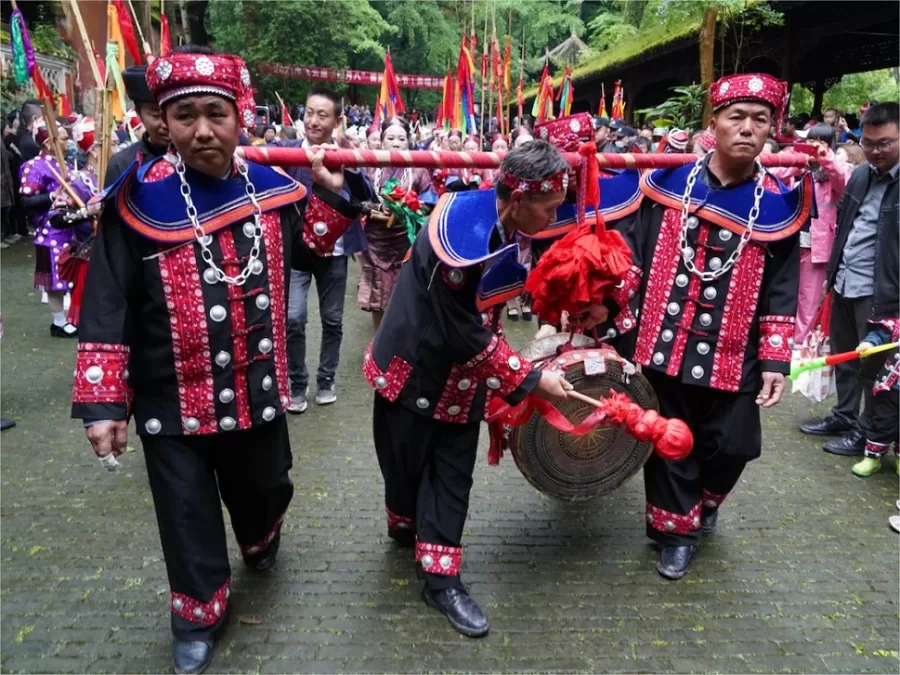Feiyun Cliff, Huangping – Ticket, Opening Hours, Location, and Highlights


Feiyun Cliff (飞云崖), also known as Feiyun Cave, is located in Huangping County, Qiandongnan Autonomous Prefecture, covering an area of approximately 0.5 square kilometers and boasting a nearly 570-year history. Its origins trace back to the eighth year of the Ming Dynasty’s Zhengtong era (1443), when the Yuetan Temple was first constructed on this site. Over the centuries, Feiyun Cliff has endured multiple instances of natural damage, facing destruction during the 27th year of the Ming Wanli era (1599) and the fifth year of the Qing Xianfeng era (1855) due to wartime conflicts.
Despite these challenges, it has undergone successive renovations and expansions throughout various dynasties, evolving into a distinctive complex of religious, ethnic, and garden architecture. This unique architectural ensemble has earned Feiyun Cliff prestigious titles such as the “First Ancient Buddhist Monastery in Guizhou” and the “First Cave Heaven in Southern Guizhou.”
Renowned Ming Dynasty philosopher Wang Yangming praised it, saying, “Of all the mountains in the world, they gather in Cloud-Guizhou, and the elegance of Cloud-Guizhou concentrates on this cliff.” Among the scenic spots in Guizhou, Feiyun Cliff stands out as the most documented and praised, preserving a wealth of poems, inscriptions, cliff carvings, and stone tablets to this day.
Table of Contents
Basic Information
| Estimated Length of Tour | 2 hours |
| Ticket Price | Free |
| Opening Hours | 9.00 – 17.00 |
Location and Transportation
Feiyun Cliff is situated approximately 12 kilometers northeast of the city of Huangping in the Qiandongnan Miao and Dong Autonomous Prefecture of Guizhou Province, China. Covering an area of about 0.5 square kilometers, it is located alongside the Xiang-Qian Expressway.
To reach Feiyun Cliff, start by taking a bus from Kaili Miao Autonomous County Bus Station to Huangping Bus Station, which costs around 20 yuan. From Huangping Bus Station, directly across the street, board Bus 10 to Feiyun Dong (Feiyun Cave) and alight at the designated stop. It’s a short walk of about 1 kilometer from the bus stop to the scenic area. The bus schedule is said to be approximately every half an hour, but it may not always be punctual, so if time is of the essence, consider taking a taxi.
For the return journey, note that it might be challenging to find a taxi directly at the Feiyun Cliff scenic area. Instead, you’ll need to walk around 1 kilometer to the entrance of Dongpo Village to catch a ride or find alternative transportation options.
Highlights of Feiyun Cliff
Annual Ethnic Gatherings

One of the most vibrant events at Feiyun Cliff is the annual ethnic gathering, held on the eighth day of the fourth lunar month. This three-day celebration transforms the site into a lively hub, featuring a variety of activities that showcase the cultural diversity of the region.
The festivities include bird fights, playing traditional reed instruments called “lu sheng,” folk acrobatics, martial arts demonstrations, ethnic costume parades, mountain song competitions, and artistic performances. The gathering also becomes a bustling marketplace, displaying a plethora of ethnic crafts such as wax dyeing, embroidery, and mud whistles. The area beneath Feiyun Cliff becomes crowded with people of all ages, fervently burning incense and praying to Bodhisattva. Throughout the celebration, incense smoke lingers in the air, creating a spiritually charged atmosphere.

At the elevated platform beneath the cliff, a majestic statue of Guanyin, the Bodhisattva of Compassion, stands tall. Monks lead worship activities at this site. Adjacent to the platform, a clear spring flows naturally, forming a small well encircled by natural rocks. A porcelain bowl is placed atop the well, collecting the sweet and refreshing spring water. Regarded as holy water, this spring remains perennial and is believed to bring health and longevity. Visitors often take a sip of the sacred water, seeking blessings for their well-being.
Feiyun Ethnic Festival Museum

Feiyun Cliff is also home to the Ethnic Festival Museum, established in January 1988 within the ancient structures of the site. It holds the distinction of being China’s first Ethnic Festival Museum. The museum’s primary exhibition, “Cultural Display of Guizhou Ethnic Festivals,” has been showcased in cities like Xi’an, Beijing, Shenzhen, Guangzhou, Nantong, and Wuxi, receiving high praise from both domestic and international audiences.
The museum houses a collection of over 1,000 cultural artifacts related to ethnic festivals. Among the treasures are distinctive festival costumes representing various ethnic groups, with the Miao ethnic group alone contributing over 20 different styles of attire. The collection also includes exquisite silver crowns, jewelry showcasing fine craftsmanship, a diverse array of ethnic musical instruments, as well as dining utensils, ceremonial items, handicrafts, and accompanying visual and textual materials. The museum stands as a testament to the rich cultural tapestry of Feiyun Cliff, providing visitors with a comprehensive understanding of the region’s ethnic diversity and traditional festivities.
Vlog about Feiyun Cliff
Guizhou historical sites, Qiandongnan attractions